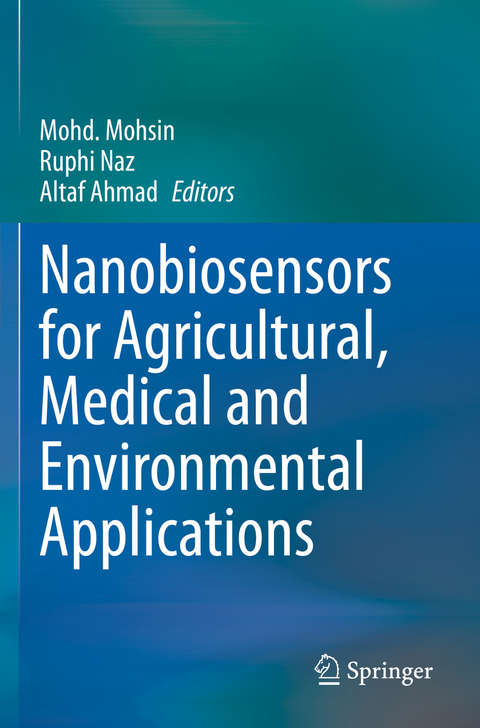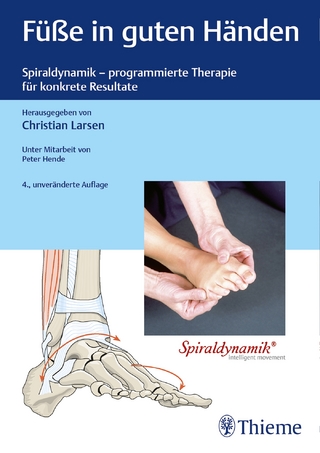
Nanobiosensors for Agricultural, Medical and Environmental Applications
Springer Verlag, Singapore
978-981-15-8348-3 (ISBN)
Mohd. Mohsin is an Assistant Professor in Jamia Millia Islamia, New Delhi, India since 2014. He completed his Master's degree in Biosciences from Jamia Millia Islamia, New Delhi, and a Ph.D. degree from Hamdard University, New Delhi. In 2009, he qualified the National Eligibility Test of Council of Scientific and Industrial Research (CSIR) and Junior Research Fellowships of Indian Council of Medical Research. He has been working on Nanobiotechnology & molecular sensors. His research interest focuses on developing “Genetically Encoded FRET-based nanosensors” for healthcare and cellular environmental monitoring. He has presented his research work in various national and international conferences and published many research papers in the journals of international repute. He received a high Impact Factor (>10) publication award in 2014. His research is funded by various agencies of the Govt. of India, SERB, DBT, ICMR, and UGC. He is mentoring several Ph.D. students and postdoctoral fellows. Also, his contribution was considered impactful by the scientific community and was conferred Young Scientist award in 2015 from Govt. of India and also an innovative research award in 2017. He is also serving as an editorial member and reviewer of several journals. Ruphi Naz is a National Postdoctoral Fellow of Science and Engineering Research Board (NPDF-SERB) at Jamia Millia Islamia, New Delhi. She earned her M.Phil and Ph.D. in Plant Biotechnology at the Department of Botany of Aligarh Muslim University (Aligarh). She has awarded UGC-BSR Fellowship during her Ph.D. She has intense background knowledge of micropropagation and plant transformation and hands-on experience of plant molecular biology techniques as well as the development of FRET-based nanosensor. She has published several research papers in the Journal of International repute. Based on her research work, she has been awarded Dr. DS Kothari Postdoctoral fellowship of the University Grant Commission-UGC (2015–2018) and Senior Research Associate of Council of Scientific and Industrial Research (2019–2020) at the Department of Botany of Aligarh Muslim University, Aligarh, India. She is a life time member of the National and International Scientific Societies. She has presented her research work in a number of conferences nationally and internationally organized in various places in India. Altaf Ahmad is a Professor of Plant Biotechnology in the Department of Botany, Aligarh Muslim University, Aligarh, India. Dr. Ahmad has a research experience of 22 years and has to his credit more than 125 significant publications. A regular reviewer and on the panel of editorial boards of National and International journals, Dr. Ahmad is also a member of prestigious National and International scientific societies. He has guided thesis research of 30 Ph.D. students (12 as supervisor and 18 as co-supervisor) and over 30 M.Sc. students. He has organized several national and international seminars/symposia. Dr. Ahmad handled several research projects funded by various agencies like BBSRS-UK, DST, DBT, CSIR, UGC, CCRUM, ICAR, and INSA. He was a Visiting Scientist at the Virginia Polytechnic and State University, USA University of Freiburg, University of Aberdeen, and the University of Cologne. Based on his research contribution, Dr. Ahmad has been honored with the INSA Medal for Young Scientist (2003) and Professor LSS Kumar Memorial Award (2003) of Indian National Science Academy, Young Scientist Award (2005) of Council of Science & Technology, Govt. of Uttar Pradesh, and elected as Associate of National Academy of Agricultural Sciences.
Chapter 1. Opportunities for real time monitoring of biomolecules using FRET-based nanosensors.- Chapter 2. Current status of nanosensors in biological sciences.- Chapter 3. Biosensor: An Approach Towards a Sustainable Environment.- Chapter 4. Nanobiosensor in health sector: The milestones achieved and future prospects.- Chapter 5. Nanosensors based on DNA as an emerging technology for the detection of disease.- Chapter 6. Genetically Encoded Nanobiosensors for Nutrients and their applications.- Chapter 7. Development of highly sensitive optical sensors based on Carbon Nanotube (CNTs).- Chapter 8. Recent advances of Fluorescent Resonance Energy Transfer-based nanosensors for the detection of human ailments.- Chapter 9. Application Of Nanosensors in Agriculture and Food Processing.- Chapter 10. Fluorescent Protein pairs and their application in FRET-based Nanobiosensors.- Chapter 11. Probes for Detection of Free Radicles.-
| Erscheinungsdatum | 03.02.2022 |
|---|---|
| Zusatzinfo | 39 Illustrations, color; 26 Illustrations, black and white; XI, 223 p. 65 illus., 39 illus. in color. |
| Verlagsort | Singapore |
| Sprache | englisch |
| Maße | 155 x 235 mm |
| Themenwelt | Medizin / Pharmazie ► Physiotherapie / Ergotherapie ► Orthopädie |
| Naturwissenschaften ► Biologie ► Genetik / Molekularbiologie | |
| Technik ► Elektrotechnik / Energietechnik | |
| Technik ► Medizintechnik | |
| Technik ► Umwelttechnik / Biotechnologie | |
| ISBN-10 | 981-15-8348-X / 981158348X |
| ISBN-13 | 978-981-15-8348-3 / 9789811583483 |
| Zustand | Neuware |
| Haben Sie eine Frage zum Produkt? |
aus dem Bereich


